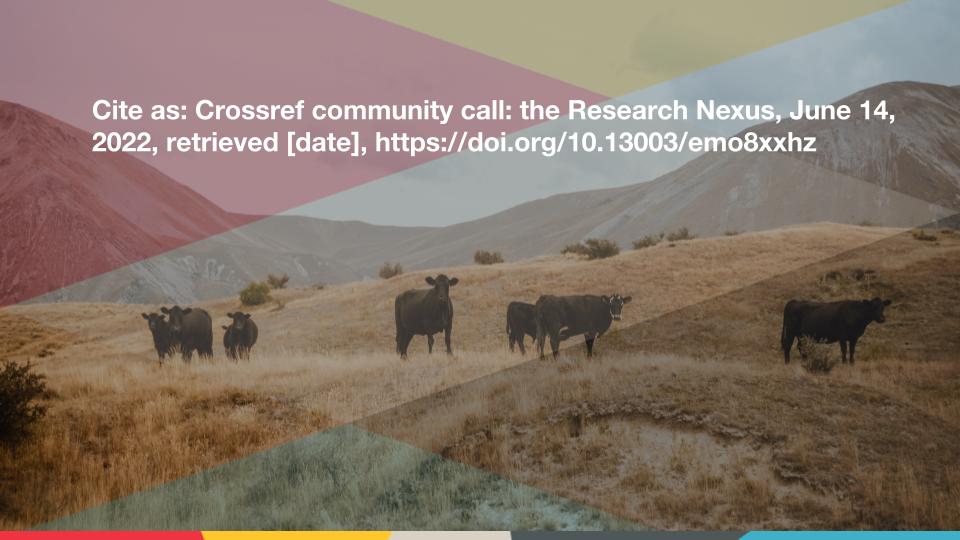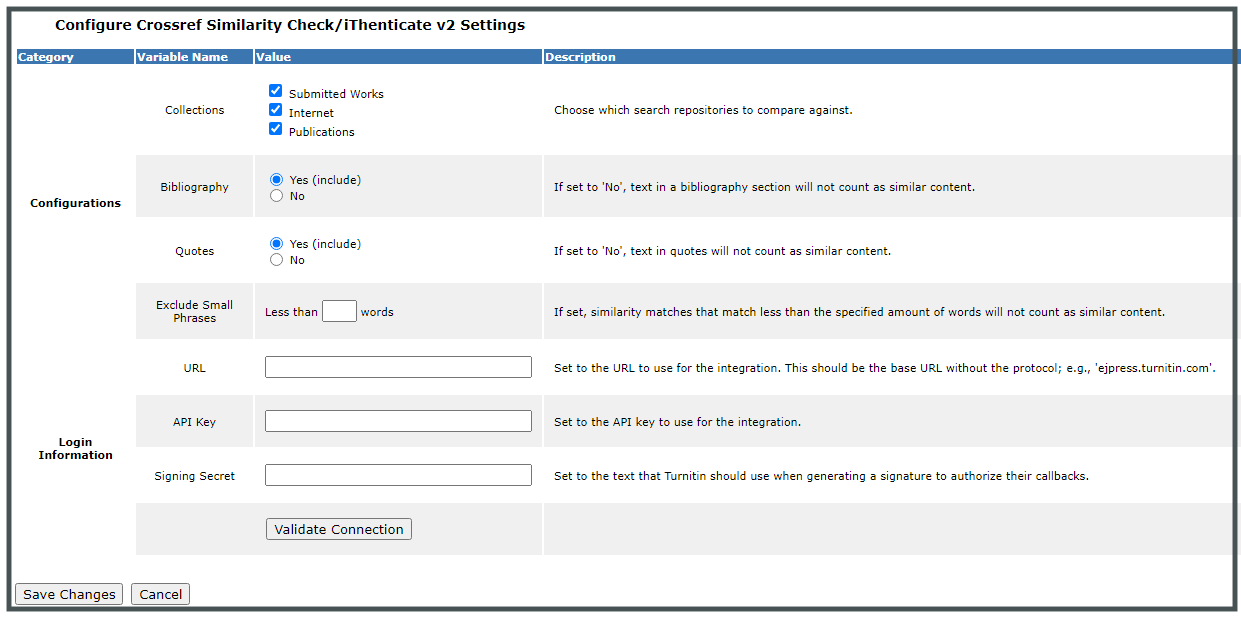The other day I was out and about and got into a conversation with someone who asked me about my doctoral work in English literature.
Crossref Blog

Having joined the Crossref team merely a week previously, the mid-year community update on June 14th was a fantastic opportunity to learn about the Research Nexus vision. We explored its building blocks and practical implementation steps within our reach, and within our imagination of the future.
TL;DR A year ago, we announced that we were putting the “R” back in R&D. That was when Rachael Lammey joined the R&D team as the Head of Strategic Initiatives.
As a distributed, global, and community-led organisation, sharing information and listening to our members both online and in person has always been integral to what we do. For many years Crossref has held both in-person and online meetings and events, which involved a fair amount of travel by our staff, board,
The Crossref Nominating Committee is inviting expressions of interest to join the Board of Directors of Crossref for the term starting in March 2023. The committee will gather responses from those interested and create the slate of candidates that our membership will vote on in an election in September.
In 2020 we released our first public data file, something we’ve turned into an annual affair supporting our commitment to the Principles of Open Scholarly Infrastructure (POSI). We’ve just posted the 2022 file, which can now be downloaded via torrent like in years past.
Unfortunately, Bryan Vickery has moved onto pastures new. I would like to thank him for his many contributions at Crossref and we all wish him well. I’m now pleased to announce that Rachael Lammey will be Crossref’s new Director of Product starting on Monday, May 16th.

Since we announced last September the launch of a new version of iThenticate, a number of you have upgraded and become familiar with iThenticate v2 and its new and improved features which include: A faster, more user-friendly and responsive interface A preprint exclusion filter, giving users the ability to identify content
A re-cap We kicked off our Ambassador Program in 2018 after consultation with our members, who told us they wanted greater support and representation in their local regions, time zones, and languages.
Tl;dr Forthcoming amendments to Crossref’s membership terms will include: Removal of ‘reference distribution preference’ policy: all references in Crossref will be treated as open metadata from 3rd June 2022. An addition to sanctions jurisdictions: the United Kingdom will be added to sanctions jurisdictions that Crossref needs to comply with.
We talk so much about more and better metadata that a reasonable question might be: what is Crossref doing to help?